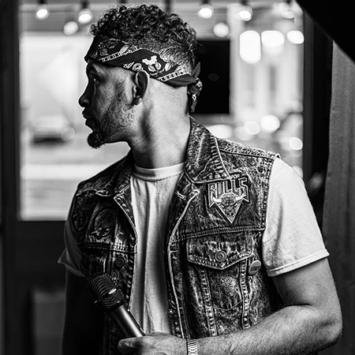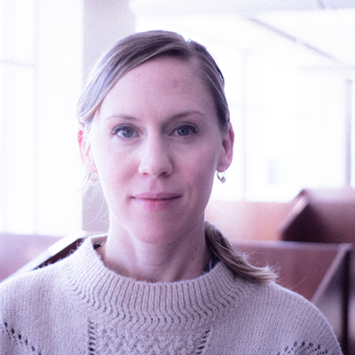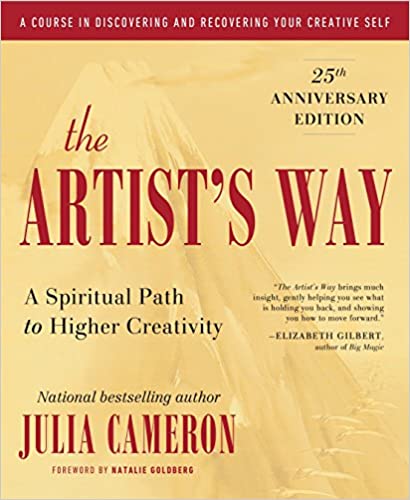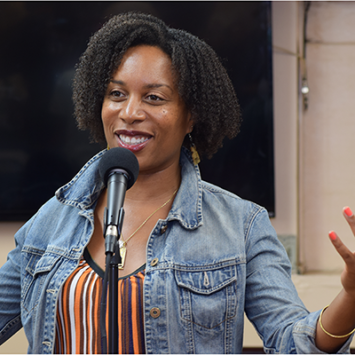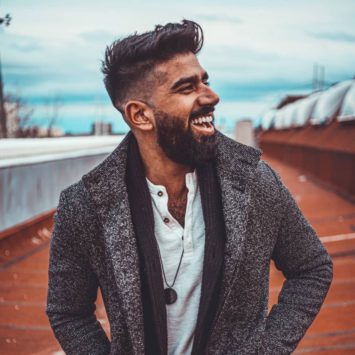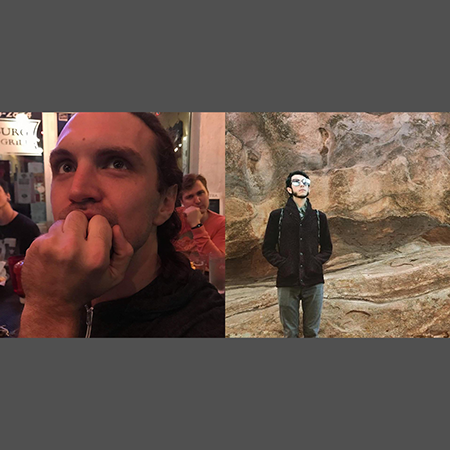Excuses or Choices
- My Niche Is Human
- Episode 4
- 30 minutes
- Interview
- Autonomy, Decision Making, Esteem, Family
Show Notes
- How important it is to understand your definition of freedom
- Surviving a drunk driver accident pretty much saved her life…
- Waking up one day with a tumor, then many days later, it was gone.
- The power of putting your life in “Phases” and knowing what to do next.
- Knowing the fine line between making a plan before acting and making one as you go along.
- The life of a gypsy, making the world her home.
- Realizing that freedom is not a place nor a thing, but a state of mind.
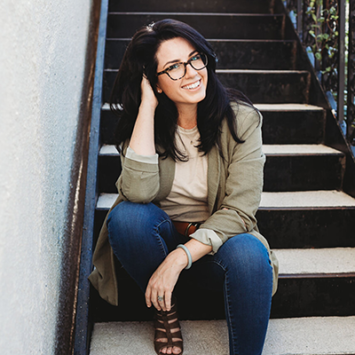
A conversation with Jessica Brightman
Imagine getting hit by a drunk driver to wake up and realize you have a brain tumor… one that may never have been found until it was too late.
This and other events are shared to stoke your consideration for seeing the reason why certain things happen to us in life. Excuse or Choices has become the mantra of my friend, Jessica, as the result of facing tragedy and finding the only strategy for survival; to make excuses or choices.
Join Jessica and me to talk about her journey with traumatic events that have happened in her life. She shares how she has used those events to give her the power to self-heal and find her life’s purpose in the process.
Resources Mentioned
- House, Season 1
- Start with Why: How Great Leaders Inspire Everyone to Take Action by Simon Sinek
- The Four Agreements: A Practical Guide to Personal Freedom (A Toltec Wisdom Book) by Don Miguel Ruiz
Excuses or Choices – Jessica Brightman
Steven: [00:00:00] Well, welcome to the show we have here. Jessica Brightman coming all the way from
Jessica Brightman: [00:00:06] Seattle, Washington,
Steven: [00:00:07] Seattle, Washington. Wonderful. Finally made it out there after many years of living in St. Pete, Florida.
Jessica Brightman: [00:00:13] Yeah. well just in Florida in general, way too long.
Steven: [00:00:15] Just in Florida in general.
Jessica Brightman: [00:00:17] Had to get out of Florida.
Steven: [00:00:19] So what brought you out there?
Jessica Brightman: [00:00:21] To Seattle. there was really no specific thing. I was doing this epic road trip that I thought I was going to go around the country for a month. I ended up going for four and a half months cause I just kept extending it and then stopped in Seattle. I’d never been there before.
I think I spent like 24, 36 hours here, but there’s just something about it that I kind of liked. And so I kept going with my road trip and then I got all the way. I think of as in like new Orleans and I was like, you know what, fuck this. I don’t want to be in the South. I, there’s a reason why I love Florida. It’s hot.
I’m just over this. And so I made a big whole U-turn and decided to go back to Seattle and try living there for like three months and I think April will be 6 months now. So it’s, been an adventure.
Steven: [00:01:09] So what’s been the biggest change for you.
Jessica Brightman: [00:01:12] Uh, goodness, really just like the way of life here is completely different.
just people are different the way they interact, the way they live. They’re just so much more environmentally friendly here. Surprisingly like when you go to the grocery store, you have to actually pay for your grocery bags. If you don’t bring your own.
And I remember after the first month or two that I was living here, I had to go back to Florida for a wedding and I went to buy, I think it was like one stupid small thing in the grocery store. And they were trying to give me all these plastic bags and I’m like, no, no, I’m different now.
I’m different now. They’re so friendly
Steven: [00:01:51] I was at the taco place the other day. And I was getting something to go and he’s like, Oh, here, let me put that in the back for you. I’m like, no, it’s okay. Don’t waste it. And they’re like, Oh, another one.
Jessica Brightman: [00:02:00] Yeah. that’s just normal, but when you’re somewhere else, you’re like, Oh, it’s one of those people.
It’s been great. Everything, the weather here, the just everything. It’s just awesome. Seattle is great.
Steven: [00:02:16] Cool. So I see online that you’re on an, on a new endeavor, new and a new journey. Tell me a little more about that.
Jessica Brightman: [00:02:25] well, so when they, so the whole reason why I’ve kind of done all the crazy shenanigans that I’ve done lately is I keep going back to this word freedom and there’s different definitions with it.
And to me, freedom is not having to be in one specific location, doing the same thing day after day. And so I quit my full-time job. I was working for a university for years and years, almost a decade. It was great. Could have been there for life, had all the benefits and all that great stuff. But it was just the same thing, again and again.
Steven: [00:02:58] Was it too safe, too predictable?
Jessica Brightman: [00:02:59] Too safe, too stable, to just mediocre. And so I quit that. I risked everything. Um, pack took my house, sold all my stuff, and I was like, I’m going to just freelance. I’m going to work for myself, have my own business. And I was doing marketing and graphic design. Just kind of like a Jack of all trades thing.
And then throughout this kind of Vagabonding journey that I’ve been doing for the past year, I realized that it’s not marketing specifically, that I love, it’s helping other businesses kind of find their identity and dress them up a little bit. And so I’ve been shifting my business now into more of that focus behind the scenes and probably in the next like month or so, I’ll do a new launch of my business.
So we’ll see.
Steven: [00:03:43] So is that, your new Instagram handle that I saw? Brightthoughts
Jessica Brightman: [00:03:48] So Bright Thoughts Design. Yeah. So that’s focused more on design aspect. Yeah.
Steven: [00:03:52] Nice. So feeling a shift in your business, was there a life shift that correlated with the shift in your business? Did one kind of lead to another? What, kind of caused that?
Jessica Brightman: [00:04:02] Um, it was kind of just all the domino pieces falling into one. So with the shift of my business, it’s really come from my shift in lifestyle and just like a mentality of how you approach things, how you live, what’s important to you. And really like kind of what sets your soul on fire and what can heal you thanks to the self healing.
Um, so fun fact, because I have all these crazy fun facts and stories a few years ago, back in 2016, I was hit by a drunk driver, which yes, it’s shitty, but there could have been more situations like I’m still alive. So that’s a good thing.
But with that, um, with the, the testing and the MRIs and I had all kinds of a herniated disc in my neck and back and all this, but there’s also issues with my brain. And so with an MRI, I, they found a meningioma, which is basically a fancy name for a benign brain tumor, which is weird because all my life, I grew up watching that show House. And I always told my parents, like, I think I have a brain tumor guys.
I think I have a brain tumor and they never believe me of course, because I’m like some 12 year old just walking around thinking, I think I have a brian tumor. But so it turns out I actually had one talk about like manifesting your.
But the crazy. I might actually have healed myself. And so that was back in 16. I’ve had multiple, well, MRIs, there’s been multiple tests done. It constantly showed up on this, on the, the images that my doctors would do. It was never to a point where they wanted to do surgery or anything like that. It was just, we’re going to monitor it and make sure it doesn’t change in size.
It doesn’t grow over, it doesn’t push too much on your other parts of your brain. And so I was like, okay, I can handle this. Some of the side effects though. The biggest problem for me was vertigo and balance, because it was in my inner auditory canal back here so that it messed with that a little bit, but I was like, ah, I can deal with that.
Like, whatever. So for years I had this and then within the last year, and I’ve quit my job, I’ve kind of lived the life that I’ve wanted to live. You know,
Steven: [00:06:13] Which is, give us a little more on that..
Jessica Brightman: [00:06:14] Which is me running basically was. Portrait. I went to China for a few weeks. I did that road trip for 4 and a half months where I basically would just spend my days hiking mountains and, and just doing whatever I wanted to do in the daytime.
And then I would use the night to work for my freelancing business. And I was just having the time of my life. Like I was, there was no stress. There was no pressure of, you need to be in the office at 9:00 AM every day. There was just, this is how I want to live my life. Like this is, this is what I want.
And so with all of that, I think I’ve healed myself because when I got to Seattle, I had to do another follow-up with my doctors. Um, you know, just to monitor this tumor and things like that. And I, I’ve been stumping doctors, like literally it’s gone from my scans. So the brain tumor is gone.
They’ve done, I’ve gone to a neurologist and audiologist. They’ve done all these tests to see if, cause I still have a little bit of the vertigo. It’s like, Oh, well we’ll test your inner ear and see if it’s now that’s a problem. That’s not a problem. They’ve done like study scans for my central nervous. Some of my brain, tested my eyes because apparently your eye muscles acted to your balance and your ears and your brain.
It’s like, that’s how one talks.. It’s insane because I just keep stumping everybody. And they don’t know how this has happened because there’s been no treatment. There’s been no like new medications, no change in like diets significantly. The only answer I can think of is, I just need to go back to the mountains, like running around the mountains, literally it’s self healed me and it’s. Yeah, it’s amazing. So if you just put yourself in a mindset and a frame of life of how you want to live and what brings you most joy, it really does wonders for just mind, body, and soul. It’s been amazing.
Steven: [00:08:07] Wow. That’s incredible. So for anyone that’s listening, like they’re, hearing you say, yeah, that’s great. You went up in the mountains. Woo. But what did you do? Like maybe on a daily basis from a mindfulness perspective, did you journal, did you self-talk like what, what, did you kind of go through on a daily basis?
Jessica Brightman: [00:08:24] Was, there was some journaling and honestly it was just a lot of gratitude and letting myself kind of feel being alive.
And so I think a lot of people, they, they just hold in so many emotions, whether it’s pure joy or pure sadness, and they don’t really let themselves kind of ride those waves. They’re just trying to block it and stick with this normal pattern of what they think their life should be like. And there’d be so many times where I’d be up in the mountains and it was just so gorgeous and I felt so grateful for being alive.
It brings me to happy tears and I feel like such a weirdo, Oh my God, these strangers on the trail are like is this girl okay? She’s just crying on a mountain. But honestly, like just feeling pure gratitude, it makes you grateful for so many different things in your life and it makes you just prioritize.
What’s important to you. What’s not important. And it’s just, yeah, just being very, self-aware very mindful and just being in the present moment, like the here and now, and not constantly thinking what’s next. What’s next, because I think we get stuck in this like rat race trap of just there’s something better.
There’s something bigger we got to go into what’s next. And you just have to kind of to take a moment to just calm down a little bit and appreciate it now.
Steven: [00:09:38] So, yeah. With, when you say calming down, so create some contrast. So you’ve described the difference in circumstances. So you said freedom felt like you were tied to one place doing the same thing over and over and over.
That’s kind of your circumstances, but what were you feeling emotionally prior to being on the mountain top and feeling all this gratitude? Was it anxiety? Was it depression? Was it stress or what? Give me the contrast on the emotional end.
Jessica Brightman: [00:10:07] Yes. So there was definitely a lot of stress and anxiety before I remember leading up to when I quit my job, just driving from my house and driving to the campus where I worked, I would start the day in such a good mood.
Like I wake up with music and have this great breakfast and be such in a good mood and just being in my car and knowing that I had to drive in the office. It would just, I would feel like my whole body would tense up and it was just anxiety and hesitation and stress of knowing that I had to continue on with this life, this daily life that I didn’t want to, which can affect you in so many different ways, mentally, physically, it can bring about like a depression where you’re just like, this shit.
I still want to do this. I have no desire to do anything else. And so I realized, actually one of my tattoos is a wave basically. And it’s a reminder that, you know, the lows of life depression will hit. If you just ride the wave and be patient, even the largest of waves will crest and move on. And so that’s why I just keep telling myself, like, just be patient, you have a plan that you’re going to change all of this soon.
Just ride it out. and it, yeah, it’s, it’s been worth it. It’s definitely been worth it.
Steven: [00:11:19] So was it kind of an all at once or do you think it was a gradual change? Because, and I asked that. Because I feel like a lot of people are looking for the easy button. They’re looking for the what’s the one thing that will turn the lights on and all of a sudden everything will be okay.
Did it feel like a gradual or was there kind of one moment where..
Jessica Brightman: [00:11:34] I wouldn’t say there’s an easy button. and that’s the thing too. People see my life and they’re like, Oh yeah, you just have this like glamorous life or you travel wherever you want. It’s so great. You can do what you want and blah, blah, blah. And. No, like I’ve made a lot of sacrifices to do what I’m doing and that’s just behind the scenes people don’t see.
But my biggest motto in life is also excuses or choices. So if you really, really want something in life, you can either choose to act differently, whether it’s baby steps that you have to take to get there. Or if it’s just like one giant leaf of quitting your job and selling all your belongings, or you can come up with an excuse of, well, I just don’t have money.
Or, um, I have too many responsibilities or people will think I’m irresponsible or whatever the hell bullshit, excuse you come up with. And you’ll just keep holding yourself back because you personally are the biggest roadblock. Yeah, it’s been good. It’s been fun. Yeah.
Steven: [00:12:33] So now that you’re at this point that you’ve been working so hard to get to, if that’s a fair assessment, what’s the next leap.
What’s the next challenge?
Jessica Brightman: [00:12:42] That’s kind of what I’m figuring out right now. I’m in what I call the recalculating mode. you know how the GPS is, if you miss your turn and it’s like recalculating. So that’s kind of where I’m at right now, because I love Seattle. Like it’s a really great city, but my intention was to only be here for three months. And then now it’s been six months.
And so I don’t really. I’m kind of in that weird in between where it’s like, okay, you start putting roots down and make this a long-term thing or it’s time to move on? And so I think it’s time for me to move on to the next city.
I have no idea where that will be yet. And that’s kind of the fun part. But I, I don’t have kids. I’m 30 years old, not married. I don’t have a house like. Almost bought one in St. Pete I was this close to going through that process before I quit and moved. But I knew this was something that I wanted to do.
And so I’m like, I might as well take advantage now, but I have that freedom to just get up and go. Right.
Steven: [00:13:37] So it’s interesting hearing that your word choice, a lot of freedom, unknown. tell me about this new flying endeavor.
Jessica Brightman: [00:13:45] Yes. Okay. So I get to sit talking about it. So ever since I was little, like to the point where I was seven years old, I first started studying about Amelia Earhart and I just had such a girl crush on her.
I thought her, I mean, yes, she was a pilot and she died because of that. But her fearlessness is what just kind of set me, just set me in motion. Basically. I was powered by that. And even at a young age, I thought that was just so amazing and so cool that this woman was just leading the way and, people were telling her no.
And she was like, well, watch me. I’m going to try it anyways. So in the back of my head, I always knew that I wanted to become a pilot, never as like a career. That’s not what I wanted as a career, but just.
Steven: [00:14:25] Cause that’d be crazy, right?
Jessica Brightman: [00:14:27] Yeah, it’d be crazy. But they it’s like just wanting to get my pilot license just to say, I have my pilot license to know that I could do that.
And so I kept putting it off for years and years. And then finally I’m like, why not start now? And so I took my first lesson actually two days ago. It’s so fucking cool. So it was supposed to be an intro flight because I don’t start ground school until the end of this month. And you have to take all these classes, basically learn to become a pilot, a meteorologist, a mechanic.
Like you have to learn all of these that once everything, and then you take your written exam and then you really start with your training hours. But I was taking an intro flight just to get used to the school, make sure I wanted to commit with them. And we’re up in the air and the guy is like, okay, I’m going to pass the controls over to you.
And I’m like, Oh no, you must have been told, like the wrong information. I haven’t taken lessons yet. I don’t know what I’m doing. He’s like, nah, it’s just keep it level. I’ll talk you through it. So I’m like, okay. So it was such, so it was just this feeling of how do I describe it? It’s like. So you have a moment where you realize that you’re literally just floating in space through the sky and it is your actions or mistakes that could literally, kill you or keep you alive.
And so you sit right on this like nice edge bouncing between fear and just pure adrenaline and excitement. And it is such a rush that I’m pumped. I’m so excited. I love it. And it’s, empowering. It’s fearful. Like you have a moment where you’re like, Holy hell, I could literally like one small jerk the controls and then the plane’s going down, but it’s just, it’s amazing. I love it.
And so that’s kind of how I live my life, basically. It’s like, I don’t believe in staying in a comfort zone to me, comfort zone is being outside of the comfort zone. If I’m not constantly on edge of trying to solve something or figure something out or having a little bit of that fear kind of fueling me, then I think we’re just wasting our time.
You’re just in life. You gotta mix it up.
Steven: [00:16:41] Absolutely. So have you ever been skydiving?
Jessica Brightman: [00:16:46] No, so that is on my list. I just haven’t decided where I want to do it at. So I’m like, should I jump in like Hawaii or somewhere like southern or the desert? I haven’t decided the location, but it is on my list.
Steven: [00:16:58] Cause when you talked about; any little mistake you make could, you know, ruin everything. I was thinking that because I went solo and as I was flying in, I’m like, I have absolute control over just plummeting. I mean, so when you land, it’s like, wow, I just saved my own life. I mean, I’ve put myself in that position, but it’s like a very empowering kind of feeling.
Jessica Brightman: [00:17:17] There is nothing that makes you feel more alive than being like this close to dying. And it’s, some people think it’s crazy, but Hey, why not
Steven: [00:17:28] Crazy is subjective. So, not too really harp, but I feel I’m very curious about your brain tumor story. Looking at that; what has that taught you the most? Did you feel different before you found out and then after did the way you lived your life changed?
Did your mindset changed? Is there any more to that?
Jessica Brightman: [00:17:51] Yeah. It’s kind of funny. I actually laughed when they first told me that I have it just because of, like I mentioned how for years when I was a kid watching all these doctors shows, thinking that I had one and I was like, I told you guys. But in overall my mindset, I don’t think it really changed too much.
I’ve had some crazy shit happen in my life. And so I’ve always known and appreciated the fact that the fact that I woke up today, breathing I’m grateful for that. A lot. I like alone. I don’t know that tomorrow is guaranteed. Um, so when I was 15 years old, I actually lost my brother. And so seeing death firsthand like that and realizing that it’s so close and unexpected, I would say that was the mindset shifts that I had years ago.
So when I found out about the brain tumor, I was just like, ah, it’s just another bump in the road. Like, keep going on as normal. And we gotta do, if, it comes a time where we do need surgery, then I’ll get surgery. If not, we’ll just keep monitoring it. And yeah, I wouldn’t say that was a significant thing.
I think my reaction to it caused more people surprised and then even a surprise for myself. Oh yeah. Yeah. It’s just like, Oh, that’s JB, that’s just, she’s doing her thing again.
That’s crazy. Yeah.
Well, it’s weird too, because I have it and it was such a significant thing, but a lot of people also didn’t really realize that I had it or that I was dealing with that for so many years. And like the side effects from it, they just, again, people see what they see on social media and they make these assumptions of your life.
Um, not realizing all the struggles and sacrifices that somebody deals with behind the scenes. Which is why lately I’ve been trying to really showcase both the good and the bad of life. Like I ride the struggle bus as well to the point where I might actually get on the wrong bus and end up at the bus depot.
So it happens. People good bad..
Steven: [00:19:57] Speaking from experience?
Jessica Brightman: [00:19:59] Yeah, actually.
Steven: [00:20:01] Nice. When, we talked earlier, you had mentioned, shifting from graphic design to more branding and helping you people put on their best face or their best image.
How did that process kind of take place?
Jessica Brightman: [00:20:15] So it’s something that I’ve always really appreciated throughout my work. You know, especially when I was working at the university as well, and I was working directly with the vice president and if I was, you know, putting a presentation together for him or creating some kind of publication, and he, he said to me once, like, Oh, but it’s not your name on it.
I’m like, it’s not my name specifically, but I’m working on behalf of you and this brand. So that is my name. And I take just as much responsibility and respect for that as if it was my name specifically. And so I, the way I think of branding basically is, you know, you wouldn’t show up at a black tie wedding wearing sports Jersey.
Like we just, you know better than that. So I don’t understand why a lot of businesses and organizations will create all these different marketing materials or different touch points throughout their business that is the same kind of message as if you’re wearing a sports Jersey to a black tie wedding. Like it just doesn’t align with who they are, what they stand for, you know, what their mission is, the type of level of credibility that they are.
So I really enjoy it. Finding out what that, that mission is, what their vision is. Doing a bunch of strategy and research as to the public eye and the psychology of different things, whether it’s, you know, color use or layout design and things like that, and then creating materials for them that it, so it’s all aligned.
And so I realized that’s what I loved most about graphic design in general is I really love helping tell that story. And so that’s kind of what I’m shifting into more now, because again, it goes along with my whole idea of freedom. And what is it that I want to spend my time doing, you know, we all have to work, we all have to make money somehow. I might as well be spending my time, how I love the most. And this is what I realized I love the most. That’s kind of my transition.
Steven: [00:22:02] Awesome. So, why do it, what’s your, why have you, are you familiar with Simon Sinek? And that book Start With Why?
Jessica Brightman: [00:22:10] I’m more familiar with the book.
Steven: [00:22:12] Are you familiar with Simon Sinek in his book? Start with why, am I frozen?
Jessica Brightman: [00:22:18] So I know you, well, you’re good now I have not read his book, but I am familiar with the concepts and my why again goes back to freedom, but it’s not just freedom for myself. It’s freedom for other companies and organizations as well.
I think, you know, me helping them tell their story, right. Can help them grow in their business and have more flexibility. If they had more options, that they might not have had elsewhere. I love, you know, working with businesses and helping them solve problems that they didn’t even realize they had, because then it just opens up, you know, their, their future endeavors even more.
So everything goes back to freedom, not in like an “Murica” sense, but just freedom of self, of, you know, identity, freedom of location of boundaries, just in so many different ways of the word. Just freedom. It’s your freedom.
Steven: [00:23:08] So for anyone that’s listening, maybe they’re where you were. Maybe they’re feeling stuck; be it in a relationship, in a job, in a state, you know, anywhere in between. What is something that they could do to at least stoke the journey, whether it’s step one or step 50 to finding a way out or to maybe realizing that they have a choice when they don’t realize that.
Cause feeling stuck is obviously in our head, right?
Jessica Brightman: [00:23:35] It is all in your head. And I honestly think it really starts with a healthy dose of self-awareness. I think, you know, a lot of times we compare ourselves to others and we think that we want a life that somebody else has, but then if you really are presented in like, faced with it, you’re like, Oh, wait, that’s not really what I want.
So I think if you’re just having a moment of self-awareness, I was actually talking to a friend about this too, the days, you know, she was let go from a job and before she just started applying for other ones, I was like, I really recommend just take like a sabbatical, basically, even if it’s like a week or two and just just get lost in your mind and realize what’s important to you.
What do you want to do? What does the future look like to you? What’s the greatest, you know, situation that could happen. What would be the worst situation that could happen and really just envision it all.
And then once you have that, that’s when you can start making the baby steps because you might not be as far away from it as you realize. You might just have to do a few little tweaks to your life, or it could be like me where you just blow the entire thing up and start fresh.
But yeah, I would say that the first step is just self-awareness. It kind of sound like AA where it’s like, the first step is acknowledging you have a problem, but it’s kind of true. It’s, it’s a, it makes sense. It’s a good sentiment.
Steven: [00:24:56] And if I can add to that, I completely agree if you can’t take the week off or maybe you don’t want to wait until you get fired or have to quit…
On Sundays, I call it my airplane mode walks. I’ll go to Weedon Island and walk for two hours in airplane mode. And just completely shut off and it’s not, “I’m going to go and think”, I don’t know, like I have no intentions; to smell the dirt, I touch the trees, I pick a blade of grass and just let your mind wander.
And if you do that a little bit at a time, it’ll either maintain your sanity before you have to quit or get ridiculous. Or maybe it’ll, it’ll start to stoke that “well, maybe I should quit.”
Jessica Brightman: [00:25:28] Yes. And then again, it goes back to what I was saying earlier about just being mindful in the moment, because once you let yourself just kind of relax for a bit, then yeah.
Like ideas start coming to you that you never even considered before. And that’s when you can realize, all right, so this is coming from like the depths of me. This must be important. How can I address this? And you wouldn’t realize that if you’re just constantly in this rush of go, go, go, we got to do the next thing.
And yeah, I liked that airplane mode. I like that.
Steven: [00:25:55] Cool.
Jessica Brightman: [00:25:57] Awesome.
Steven: [00:25:59] Anything else?
Jessica Brightman: [00:26:00] I got a life advice. Should I talk about phase three?
Steven: [00:26:06] Yes, of course.
Jessica Brightman: [00:26:09] So what’s next for me is honestly the unknown. I that’s what I’m trying to figure out. But what I, what I’m currently in right now basically is what I call phase 3. So I tell all my friends is something like “you kind of find your phase 3.”
Steven: [00:26:24] So hold on a second, please, may I, what’s phase 1 and phase 2, just to kind of give us some perspective?
Jessica Brightman: [00:26:30] I got to do a tour.
So phase one is; I would consider your childhood basically. And so it’s, you know, when you’re presented with a lot of, kind of the facets that make us human, you’re exposed to, you know, the concept of relationships and trust and just everything that makes us human, like that’s when you’re first exposed to it.
So you don’t really have a lot of control, it’s just, that’s how it is. And then phase two, I would say is, you know, you’re a little bit older. You’re like probably in high school. And then, you know, you’re a senior graduating high school and you’re you’re 18. So you’re technically an adult, but you’re really still a kid just trying to figure it all out.
Some of us go to college, some of us start families, some go to the military. It’s just really phase 2 is; you’re just like testing different boundaries. You’re fucking up a lot. You’re starting and stopping different relationships. You’re trying to find your circle of people who you, who you mesh with the most.
And it’s also a time where you can really recognize all of those facets of the trust and relationships and love and working hard and all that kind of stuff. And realize that either you want to continue that cycle that you learned in phase one, or you want to do something differently. And that it’s a moment where you can’t keep using the excuse of like, “Oh, well, this is just how I was as a kid.”
So that’s how it is.
It’s like, no, you’re an adult now you can choose to think differently. So then phase three is; I would say probably like mid to late twenties, sometimes for people it’s later, or sometimes it could be in their forties or fifties. Some people never choose this, but it’s a mindset shift where you realize what you want the rest of your life to look like and how you want it to go.
And it’s a moment where it’s like, okay, this is make your breaks. You either need to blow your life up in order to get to where you want to go. Or you just have to make like small, small adjustments or you’d have to just accept that this is, it is because it’s again, excuses or choices.
So your phase three is; for me, it was quitting my job, it was.. Even before that ending an 8 year relationship. It was choosing to move out of Florida. Because I knew that the long-term goal that I had for myself, it would never be reached if I was just stuck in phase 2 and like the cycle of phase 2 again and again. And so I see my friends are just even keep telling me all the time that I noticed that they’re kind of stuck in phase 2.
And I’m like, all right, what’s your phase 3? You gotta, you gotta do something different now. Like you’re ready for it. I can tell that you’re ready for that change. Now it’s time to act on it. And you’ve got to go into phase 3.
Steven: [00:29:13] Awesome. So, I want to dive in more, but real quick, if anyone’s listening, if they want to did any book stoke this for you?
Like the concept of phase 1, phase 2 and phase 3, is there any kind of resource?
Jessica Brightman: [00:29:25] Kind of came up with it all in my own little noggin here.
Steven: [00:29:29] Very cool.
Jessica Brightman: [00:29:34] That makes sense. Why? Cause I’m crazy?
Steven: [00:29:38] Um,
So in closing, you know, you talk a lot about phase one and I’m really fascinated by that. I just finished Four Agreements a little while ago, and a lot of what’s given to us a lot of our original agreements aren’t necessarily up to us; be it through nature or nurture until actually the way you put it until phase 2, we can start to unlearn these and figure these out.
So if you could go back to yourself in phase 1, call it 8 to 14 years old. What is something that you would tell yourself
Jessica Brightman: [00:30:16] What would I tell myself? Hmm. So I hate to sound like such a downer, but, um, when I was 13 no, yeah. 13, basically for 9/11, I lost my uncle. He was on flight 11. And so at that moment, I became really just cynical of the world and everything. I didn’t understand why this tragedy could occur, why someone so good could lose their life.
And so I just became like this just angry, bitter, punk of a kid basically..And so I would go back and tell myself to just kind of like, let that go basically, like I would carry so much of it on my shoulders and just have this constant, like just built up energy. So then the thing I would tell myself to just let it go.
Um, and it’s something that I learned, you know, years later, actually, when I lost my brother is when I kind of did a, a 180 in realizing that, okay, life is short. Like I I’m seeing this again and again. Like you can choose. Basically, excuse or choices. You can choose to live one way or you can choose to live another.
So I think I would’ve, if I could have told myself that years earlier and kind of like, let go of some of that earlier, it would have saved me some time, but came around eventually. So..
Steven: [00:31:37] So that that’s one of the many blessings your brother left you. He was like, Hey, you can’t do this every time someone passes, it’s too big of a load to carry.
You gotta, you gotta change your ways.
Jessica Brightman: [00:31:47] I know, and it, I always say everything happens for a reason and people will think that that’s insane for me to say, especially because I’ve had so much tragedy, but I honestly believe that like my brother was only supposed to be around for the years that he was, and that everything that has happened because of it, it would have never happened.
Like everything that I’ve learned, the person that I’ve grown into, the relationships and people that have been able to meet, the things I’ve been able to do. Yeah, I would have had a completely different life path because I would have been still stuck in that cynical, negative, just hostile mind frame. And so, yeah, I think everything happens for a reason.
Obviously I miss him and like no other, but everything happens for a reason.
Steven: [00:32:29] Mm wow. That’s a perfect ending.
Jessica Brightman: [00:32:33] Yeah.
Steven: [00:32:35] Well, thanks for taking time to be on the show. It was good to have you.
Jessica Brightman: [00:32:38] Yeah. I loved it. It was great. We finally got the technology work in this time.
Steven: [00:32:42] Yeah. Yeah. That was my bad. Cool. So,
Sign up to receive email updates
Enter your name and email address below and I’ll send you periodic updates about the podcast.
Connect with Guests & Host

Jessica Brightman
Jessica Brightman (aka JB) is a creative and inspired marketer with global experience in digital media + graphic design in both in-house and agency settings. Her work in the marketing field has spanned for nearly a decade, but her passion for graphic design and a solopreneur lifestyle was innate. In 2017 she decided to break the chains of mediocrity and gave up a stable and secure job to become her own boss and founder of Bright Thoughts to freelance around the world instead. Inspired by her travels and location-independent lifestyle, JB builds connections through culture, content, and color.
